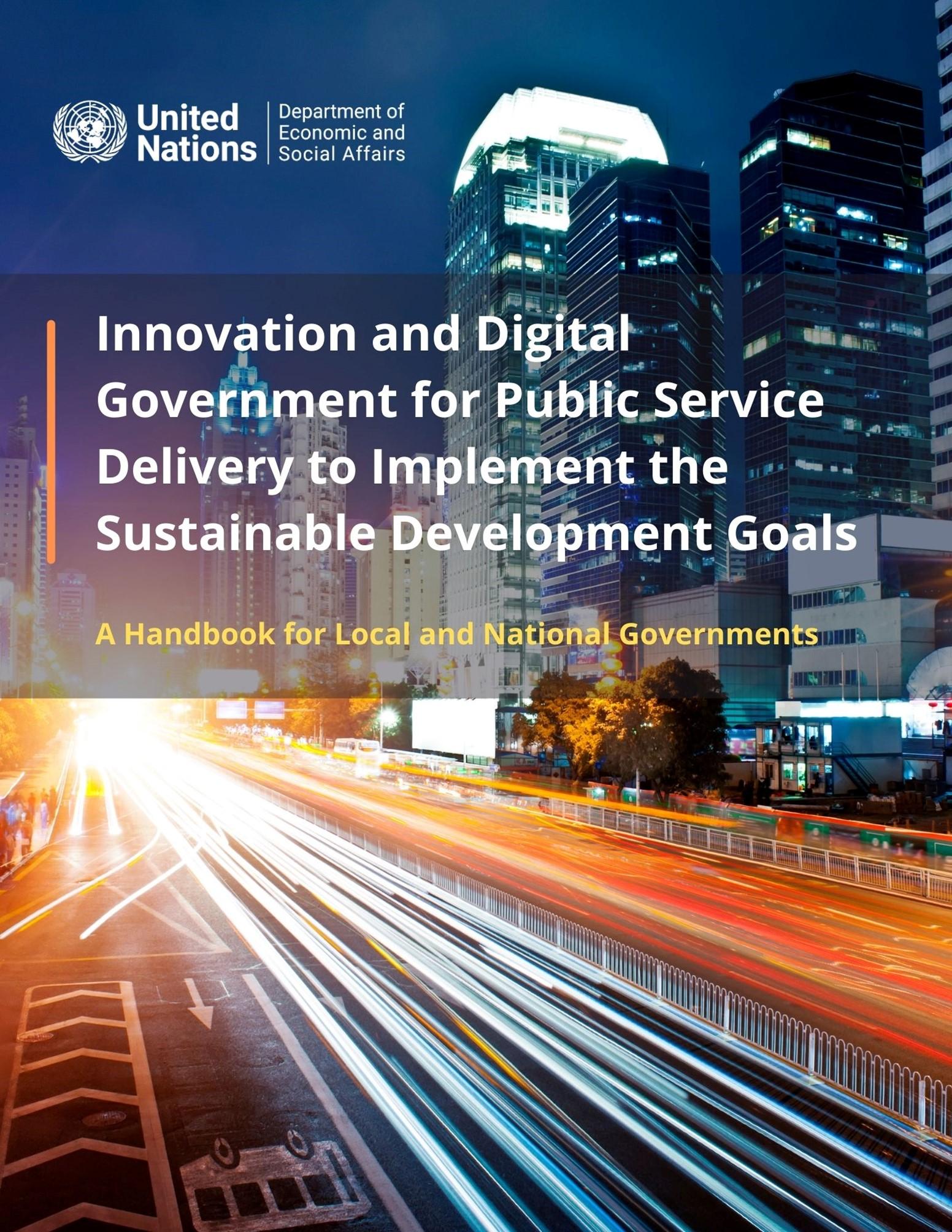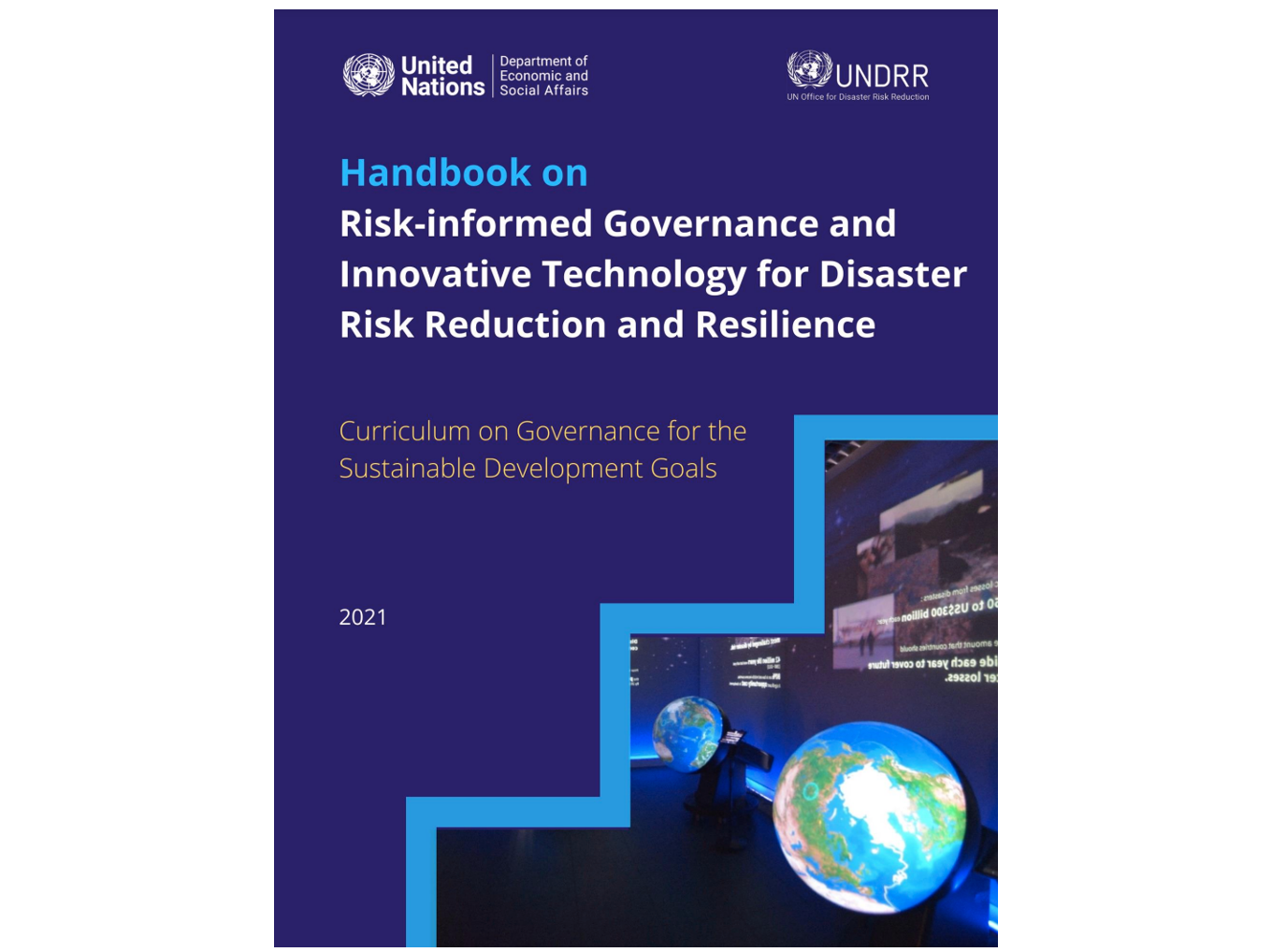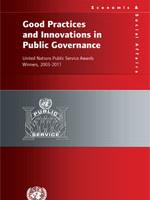| Handbooks | Local Governance | Public Institutions
Strengthening Resilience in Cities and Local Communities Through Innovation and Digital Government
This handbook introduces the reader to concepts, approaches, tools, exercises and innovative cases to Strengthen Resilience in Cities and Local Communities through Innovation and Digital Government. The handbook guides the reader towards roadmaps,…
| Handbooks | Local Governance
Social Value in Local Governments
Over the last few years, the world has experienced an unprecedented pandemic. At the crossroads of coexistence or co-destruction, nations learned that community-centred thinking and action was needed, breaking away from self-centred behaviour. This…
| Handbooks | Local Governance
Promoting Local Innovation for Inclusion of People in Vulnerable Situations and Leaving No One Behind
Ensuring no one is left behind is the overarching principle of the 2030 Agenda for Sustainable Development. Achieving that goal entails taking bold and accelerated actions to end extreme poverty, curb inequalities, confront discrimination and fast-…
| Handbooks | Local Governance | Public Institutions
Fostering Collaborative Public Administration for Local Governments
This handbook explains the concepts, attributes and approaches of collaborative administration and specifically introduces practical cases of collaborative public administration in local governments in the Republic of Korea. Collaborative public…
| Handbooks | Digital Government
Handbook on Digital Transformation in Local Government Leadership, Human Resources and Organizational Structure
The age of digital transformation, including the evolution of early e-government efforts towards a more holistic and user-centered approach, has arrived. The 2030 Agenda for Sustainable Development (2030 Agenda) includes a focus on governments’…
| Handbooks | Local Governance
Effective National to Local Governance for Climate Change Mitigation and Adaptation
This handbook introduces the reader to concepts, approaches, tools, exercises and innovative cases relating to Climate Change Mitigation and Adaptation. The handbook guides the reader towards roadmaps, policy toolkits, manuals and peer support to…
| Handbooks | Sound Policymaking | Supreme Audit Institutions
Handbook on strengthening budget credibility through external audits
DPIDG/UN DESA is collaborating with the International Budget Partnership (IBP) to support Supreme Audit Institutions in conducting analyses of the credibility of government budgets through external audits (SDG16.6.1).“Strengthening Budget…
| Handbooks | Digital Government | Public Service Innovation
Handbook on how to design and implement One-stop-Shops to promote better service delivery and implement the Sustainable Development Goals
This Handbook, prepared by UN DESA/DPIDG, provides local and national governments with a set of conceptual approaches, practical strategies, and tools to improve the delivery of public services through citizen centric One-stop-Shops (OSS). It…
| Handbooks | Local Governance
Innovation and Digital Government for Public Service Delivery to Implement the Sustainable Development Goals: A Handbook for Local and National Governments
This Handbook provides local and national governments with current conceptual frameworks as well as a set of practical strategies and tools on how to promote innovation and digital government for the delivery of public services. It includes guidance…
| Handbooks | Digital Government | Public Service Innovation
Handbook on Risk-informed Governance and Innovative Technology for Disaster Risk Reduction and Resilience
This Handbook is developed based on the Traning of Trainer Toolkit on Risk-informed Governance and Innovative Technology for Disaster Risk Reduction (DRR) and Resilience. The overall learning outcome of this training toolkit is to meet the…
| Handbooks | Digital Government
Digital Government Capability Assessment
The Digital Government Capability Assessment (DGCA) is a six-dimension framework of enablers to engage governments in discussions towards digital government transformation. Considering that digital government requires a multifaceted response from…
| Good Practices and Innovations in Public Governance | Public Service Innovation
Good Practices and Innovations in Public Governance
This publication provides an overview of 145 successful innovations in governance and public administration from 50 countries that received the United Nations Public Service Awards, which is the most prestigious international recognition of…
 Bienvenue aux Nations Unies
Bienvenue aux Nations Unies



